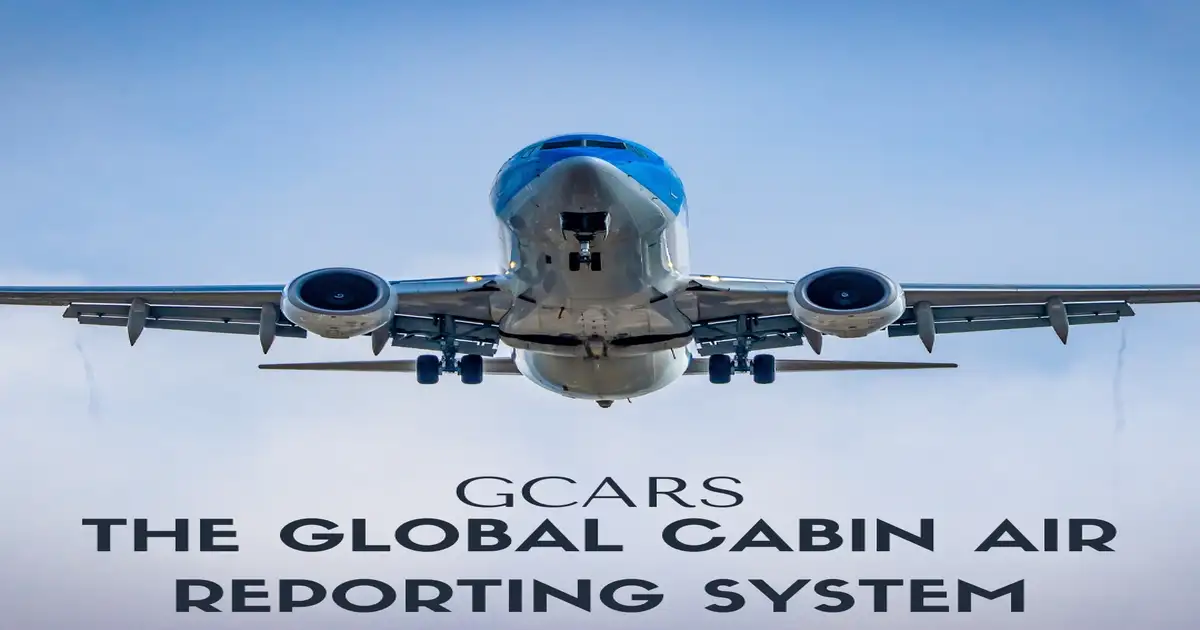The Global Cabin Air Reporting System (GCARS) is an essential addition to aviation safety infrastructure that provides a single platform for reporting and tracking cases of polluted air within an airplane. Geared towards the aviation industry, It brings in an age of heightened communication, vigilance, and readiness—essential ingredients in the quest for safer skies as we move into the future.
Table of Contents
Understanding GCARS: A Global Snapshot of Air Quality
It spearheads the charge for a more comprehensive approach to air quality issues in aviation. It was conceived out of a necessity identified by the Swedish SHK air accident department in 1999, following an investigation into a contaminated air event that resulted in the incapacitation of the flight crew. Recognizing a glaring gap in global aviation safety measures, the initiative for a centralized database for contaminated air events took flight.
Designed with the International Civil Aviation Organization (ICAO) guidelines at its core, GCARS ensures that every member of the aviation community has an extensive and accessible tool to report incidents. It allows for a detailed understanding of the frequency and nature of such occurrences but also aids in formulating effective responses and protocols.
Accessible at no cost to flying professionals and passengers worldwide, It is a testament to the power of collective action in safeguarding the sanctity of flight.
The Importance of GCARS for Aviation Safety
The significance of GCARS reverberates through the entire spectrum of aviation safety. By instituting a meticulous reporting system tailored to contaminated air events, GCARS equips the industry with richer data to identify root causes and trends. This newfound insight catalyzes the development of preemptive measures and the enhancement of in-flight air quality standards.
Furthermore, It fosters a culture of transparency and collaboration by streamlining the dissemination of critical information. This shared knowledge empowers stakeholders to build a robust framework of best practices, ensuring that every organization can learn from the community’s collective experiences to safeguard aircrew and passengers.
Utilizing GCARS in Practice: Reporting and Beyond
Effective utilization of GCARS is critical to reaping its benefits in practice. Aviation community members are not mere observers but active participants in enhancing safety standards. The reporting process is straightforward for aircrew and passengers, guided by clear instructions and unified standards that transcend geographical boundaries. The benefits of this participatory approach are multifold, from personal reassurance to the broader advancement of global aviation safety.
A centralized global database for contaminated air events facilitates a deeper understanding of the complexities and nuances of air travel safety. Every entry into GCARS contributes to a shared repository of knowledge, a resource invaluable for safety professionals and regulators looking to protect the industry’s most precious cargo—its people.
The Future of GCARS: Continuing the Path to Safer Skies
It is not just a tool for the present but an investment in the future. As the system evolves through its current Phase 3 of development, stakeholders are actively engaged in identifying opportunities for enhancement. Collaboration with industry leaders and a constant dialogue with the aviation community ensure that GCARS remains adaptive and responsive to the intricate needs of a dynamic industry.
Conclusion: A Call to Action for Safer Skies
It symbolizes the relentless pursuit of safety in the skies. It is a platform for unity, where the concerns of individuals merge into a collective voice—a voice heard and heeded by the guardians of aviation. As we look to the skies with hope and ambition, GCARS is a testament to our commitment to safe and secure air travel.
We urge every member of the aviation community to engage with GCARS actively. Your reports, experiences, and insights are the building blocks of a safer tomorrow. Each contribution is a step towards refining the art of flight, making it efficient and indisputably safe. We can control the destiny of aviation safety in our hands, and with GCARS, we are prepared to face it. Every departure should be an exciting and secure way to begin a trip if we come together.

